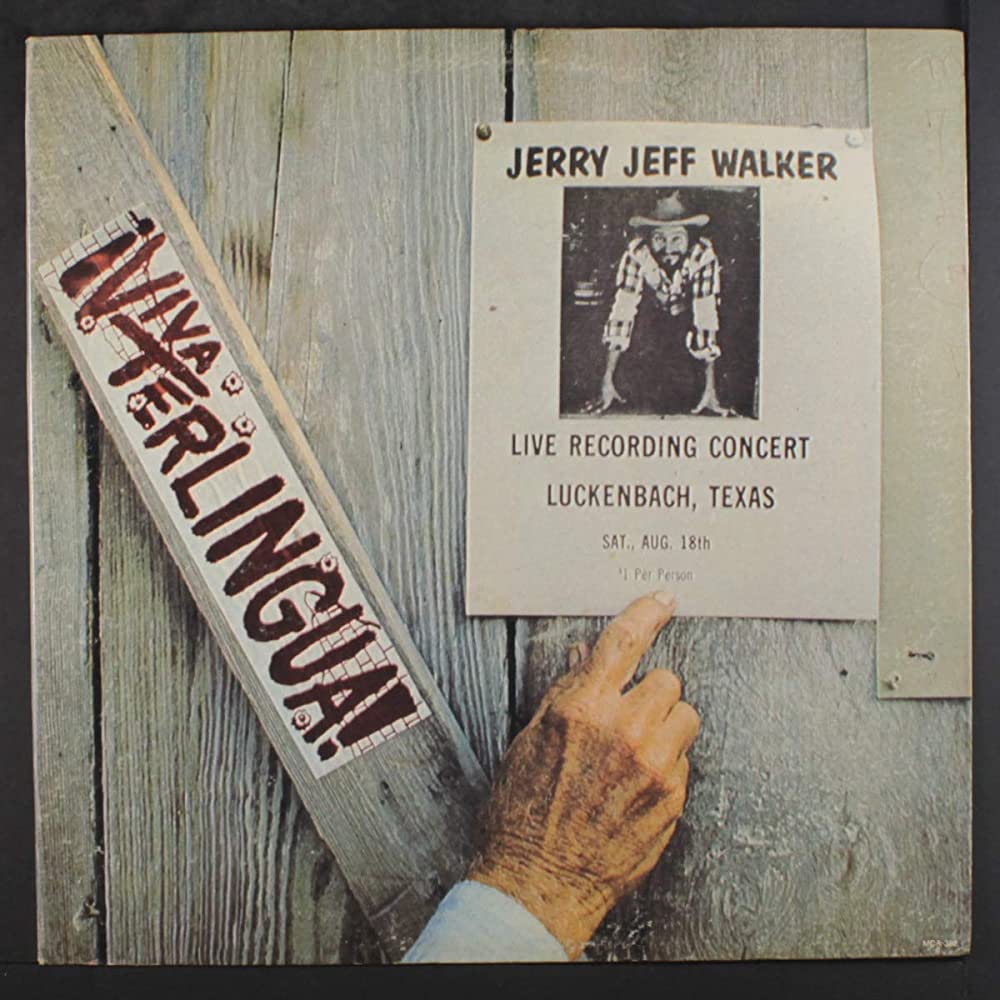Vividly, I remember watching Austin City Limits on the local PBS station in Eufaula, Alabama, at four years old, having zero clue who anybody was or what they were on about– but there was always that one song. It stuck in my pre-mullet bowl-cut head like spent Hubba Bubba on hot asphalt, and like Waylon’s “Good Ol’ Boys” from The Dukes of Hazzard (that one I knew) was a steady soundtrack to my inner dialogue, a mantra without beginning or end: I wanna go home with the armadillos…
Decades unraveled before I properly learned about the ACL theme “London Homesick Blues” and its writer Gary P. Nunn, who conceived it while on tour in England with Michael Martin Murphey. At one point, confined to a London flat with no money and no heat, the Texan did the only thing he could think of, which was to compose a lament about his poor circumstances (possibly the most Texas reaction to any situation). It’s the kind of true story that matched with the right chords and at the right time catches you solid under the chin– no blood, no gunplay, no outlaw-ish hijinks, or qualifying, just the ache of being far away from the place you want to be.
In 1973, Nunn met up with his friend Jerry Jeff Walker in a bar in Austin, Texas, and there was an idea on the table. Born Ronald Crosby in Oneonta, New York, Jerry Jeff had written the legendary “Mr. Bojangles” and landed in the Lonestar capitol somewhere in the key of 1971 before releasing his seminal self-titled ’72 album that set the stage and the bar for outlaws as well as what became deemed “progressive” country music. He was a sharp lyricist on his own but also had an instinct for truly great songs and for his next project, Walker wanted to set up shop in a dancehall in then-unknown Luckenbach, Texas. Walker assembled the Lost Gonzo Band with Nunn, Craig Hillis, Herb Steiner, Kelly Dunn, Bob Livingston, and Michael McGeary and set off for the hill country that August.
Like his previous outing, the only aesthetic Walker was concerned about was good material with fight and bite to it, and holing up in the Luckenbach Dancehall, Jerry Jeff and the gonzos (including a 21-year-old Mickey Raphael on harmonica) spent the better part of two weeks recording and building up to a final Saturday night blowout (tickets to the advertised event were a $1 apiece) they intended to commit to tape and immortality. Ultimately, Viva Terlingua is more than an album– it’s a bible, a stoned tablet of honky tonk poetry.
Lead cut “Gettin’ By” brings us all in on the con– the only plan is that there is no plan– as Walker antagonizes MCA president Mike Maitland (Ah, Mike, don’t you worry, somethin’s bound to come out)– but it’s the smiling heel handshake suckering you into an epic knee to the solar plexus by way of “Desperados Waiting For A Train”. As Mary Egan’s fiddle laces in and out, you can feel the collective heave of emotions that bear along Guy Clark’s coming-of-age autobiographical account of his friendship with Jack Prigg, his grandmother’s oil drilling boyfriend.
Sequenced perfectly, the sweet twang of “Sangria Wine” raises thirst and spirits before jangling heartbreaker “Little Bird” bounces funky into “Get It Out”. Though the majority of Viva was recorded without an audience, the B-side kicks off with a real-live version of Ray Wylie Hubbard’s tongue-in-cheek anthem “Up Against The Wall Red Neck”. Written after a particularly harrowing experience in an Oklahoma roadhouse, the tale of a momma-enabled shitkicker captures the raw glory of a Luckenbach crowd, no doubt fighting the late summer heat with galvanized buckets of cold beer as the Lost Gonzo Band slays from the stage.
Dropping into Michael Martin Murphey’s “Backslider’s Wine”, Walker cuts the original vintage’s teasing attitude with 100-proof regret, and when the haunting slow-mo car-crash dream of “Wheel” surreally eases in, there’s a sense of finality, of accomplishment–the last swig on the lips, the dregs of the final bottle settled, one last epiphany to carry us off into the night… But maybe not quite yet.
Legend has it that on the afternoon of August 18th, 1973, the day of the big show, Gary P. Nunn and Jerry Jeff Walker sat outside under a tree in Luckenbach, pickin’ and tradin’ songs. Later that night, as the dancehall brimmed with smoke and laughter and a throng of revelers miles from care, the set was all but finished when Jerry Jeff figured the gonzos had one more in ’em and said to Nunn, “Play that song you were singin’ under the trees.”
“London Homesick Blues” closes out Viva Terlingua, and it’s impossible that something so last-minute, so unplanned (that’s the plan, Mike) could work– at all. But gah-damn, it might be the most natural-sounding thing ever recorded! That daredevil execution has been every band’s fantasy before and especially since. I’ve had it stuck in my head for forty years, and if you see me, it’s very likely I’m humming it under my breath.
Bruce Robison once told me, “If you look at any of this junk I’m doin’ out at The Bunker, it’s all just tryin’ to make somethin’ sound like Viva Terlingua…” And Bruce, a Texas songwriting icon and impresario of the Next Waltz label, wasn’t just talking about live, analog recording. There’s an unquantifiable ethos captured in the grooves of that album that’s preserved as neatly as a scorpion in amber, fated to forever threaten, delight, and inspire. Viva Terlingua’s desperados and perfect songs offer the best of all possibilities– the signature moments of glee, sorrow, brutal understanding, and no small amount of whiskey wit– to rob time of its essence as long as there’s one more voice to join the chorus. I wanna go home with the armadillos…
